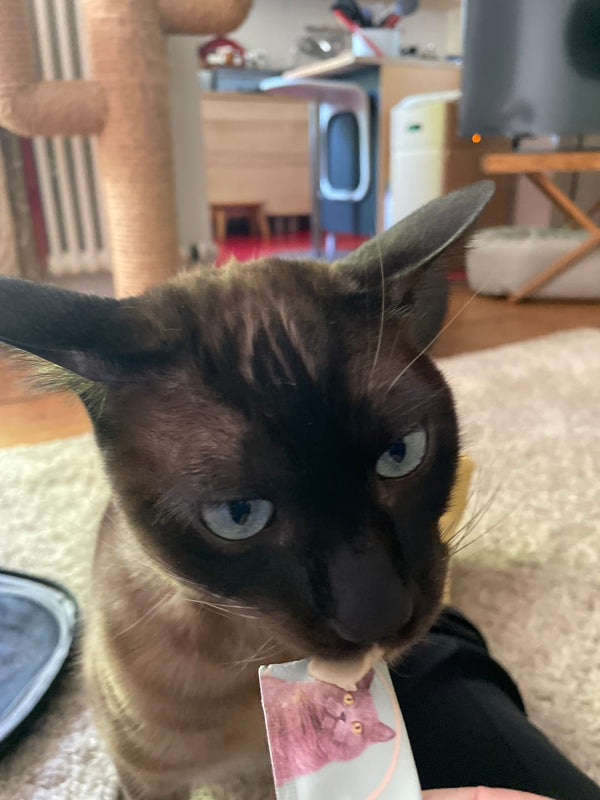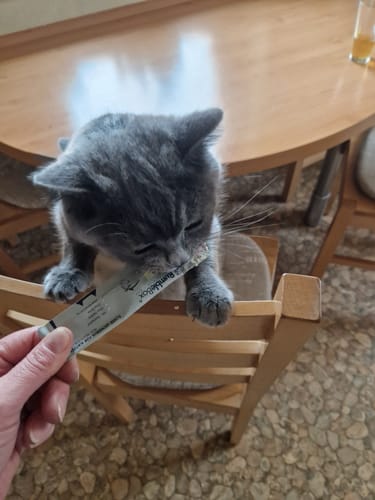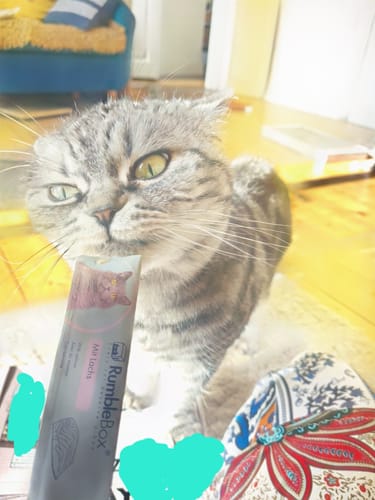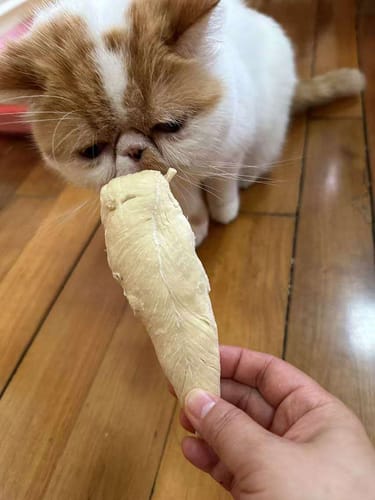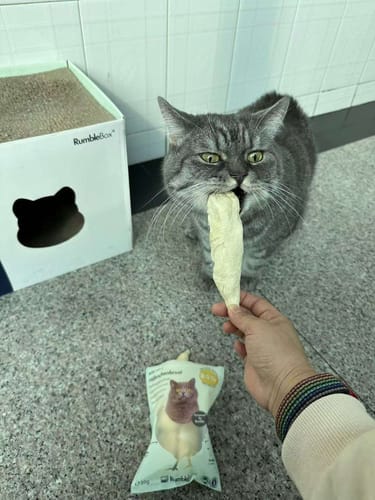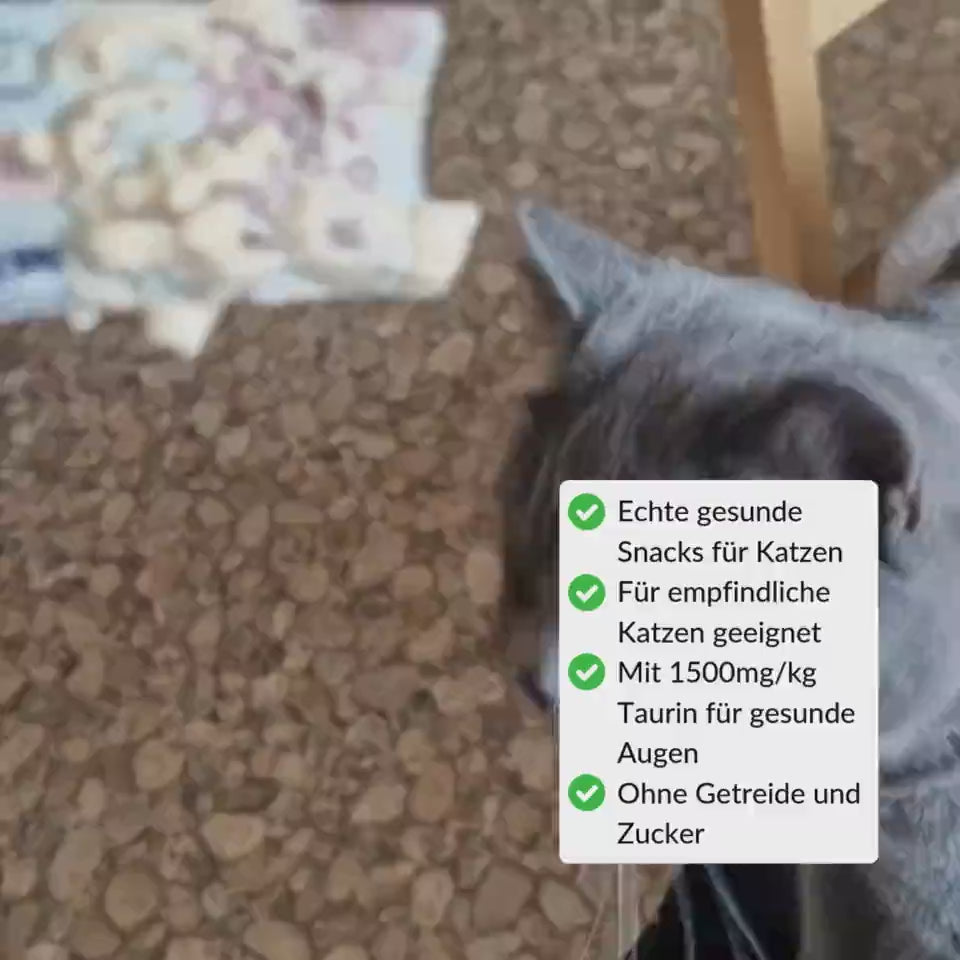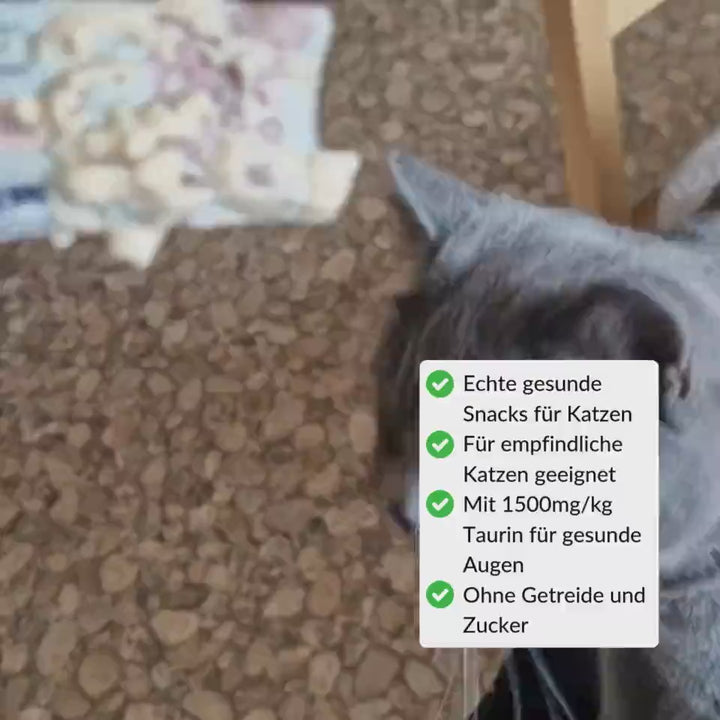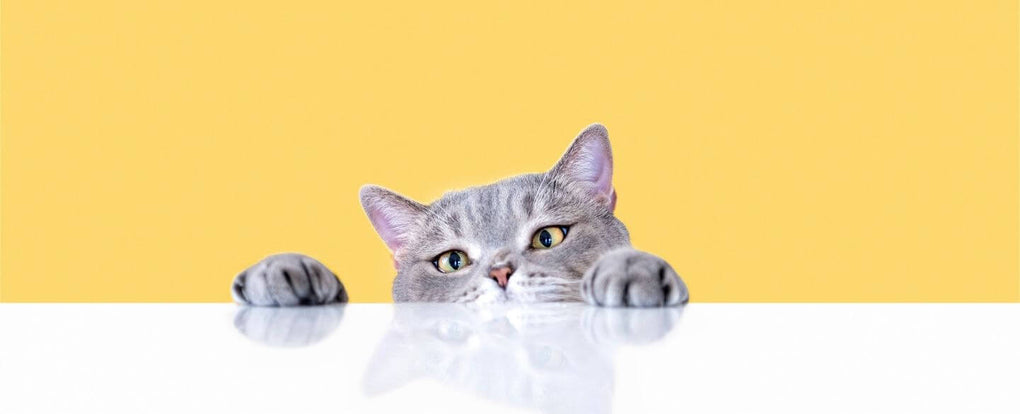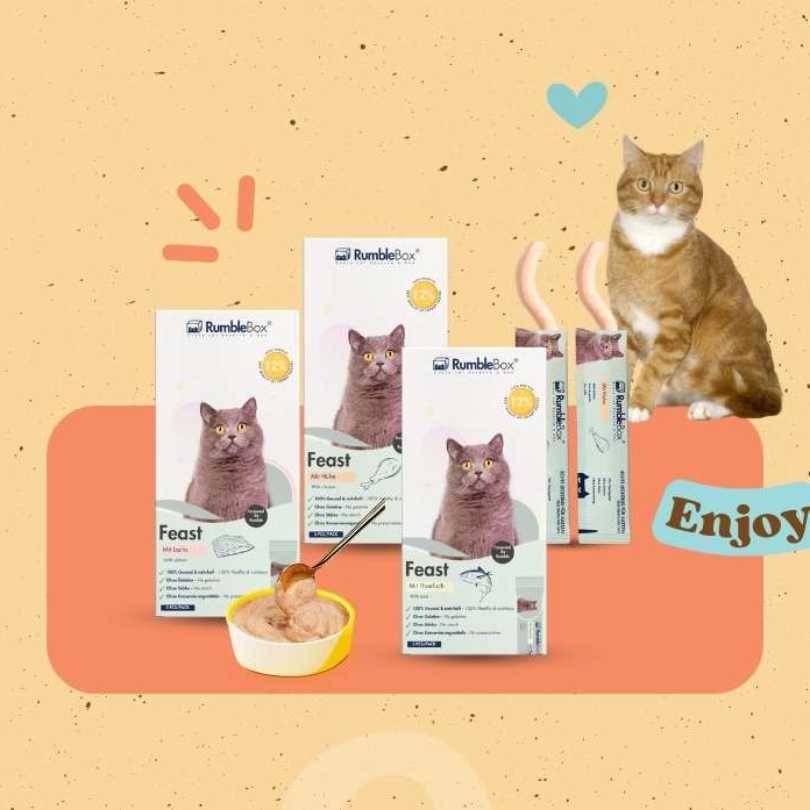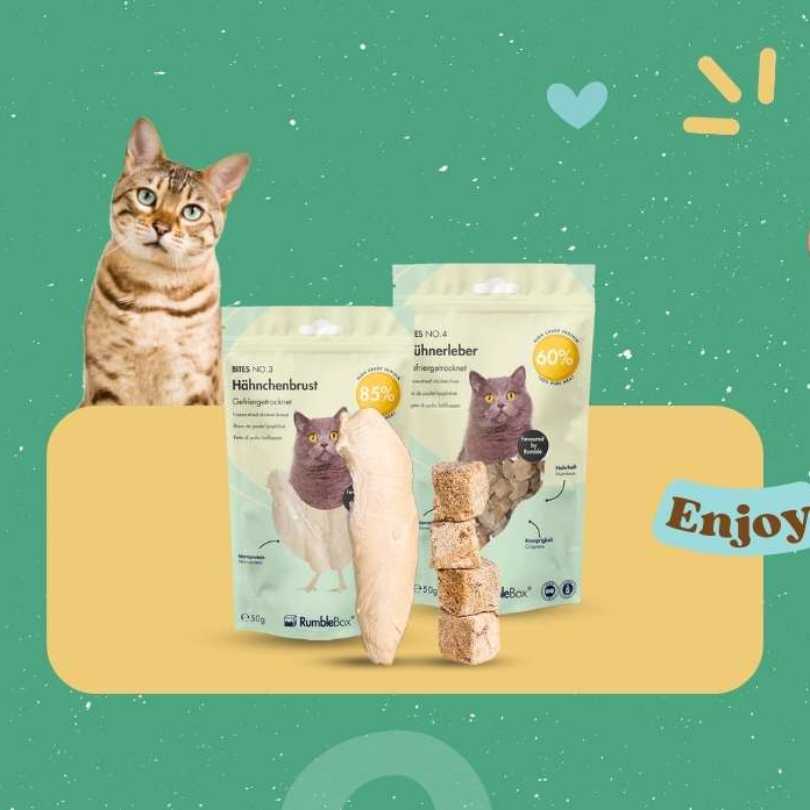Egg yolk for cats: healthy or dangerous?
Table of contents
1. Can cats eat egg yolks?
Yes, egg yolks are healthy for cats in moderation. They contain important vitamins, healthy fats, and high-quality proteins.

Important nutrients in egg yolk:
- Proteins – Support muscle growth
- Vitamin A – Good for eyes, skin and coat
- Vitamin D – Promotes strong bones and the immune system
- Omega-3 fatty acids – have an anti-inflammatory effect and support joints
- Biotin (Vitamin B7) – Important for healthy skin and claws
But beware:
Egg whites contain avidin , an enzyme that breaks down biotin. Too much egg white can lead to a biotin deficiency in the long term. Therefore, only the yolk should be fed.
2. Raw or cooked egg yolk – which is better?
Many cat owners wonder if raw egg yolk is safe.
Raw egg yolk: risky or not?
- Salmonella risk: Raw eggs can contain bacteria.
- Digestive problems: Some cats are sensitive.
If you still wish to feed raw egg yolk:
- Use only fresh organic eggs
- Clean with warm water beforehand.
- Feed immediately after opening.

Boiled egg yolk: The safe choice
- No risk of salmonella
- More digestible for cats
3. How often and how much egg yolk can a cat eat?
Egg yolks should only be fed occasionally. Overfeeding can lead to obesity or digestive problems.
Recommended amount per week:
- Small cat (up to 3 kg): ¼ egg yolk
- Medium-sized cat (3-5 kg): ½ egg yolk
- Large cat (over 5 kg): 1 egg yolk
Feed a maximum of 1-2 times per week.

4. Benefits of egg yolk for cats
- Skin & Coat: Biotin and Omega-3 ensure a shiny coat.
- Immune system: Vitamins A and D strengthen the body's defenses.
- Joints & muscles: Proteins and fatty acids promote mobility and muscle growth.
- Digestion: Natural fats in egg yolks support a healthy intestinal flora.

When is egg yolk particularly useful?
- Older cats with joint problems
- Cats with dull fur or skin problems
- Active or underweight cats
5. Risks of egg yolk for cats
Not every egg yolk is healthy. Be aware of these risks:
- Salmonella risk: Especially possible with raw eggs.
- Biotin deficiency: What to do if your cat accidentally eats egg white.
- Too much fat: Can lead to obesity or digestive problems.
- Cholesterol: Usually unproblematic for healthy cats, but it can be risky for overweight cats or senior cats with heart problems.
6. Healthy alternatives to egg yolks
If your cat doesn't like egg yolks or you're looking for an alternative, try these nutrient-rich options:
- Eggshell powder: A good source of calcium for strong bones
- Chicken broth: Supports fluid balance and provides important minerals ( Make your own chicken broth for cats )
- Salmon or tuna: Rich in omega-3 fatty acids for coat and joints
- Liver: Contains many vitamins, but feed only in small quantities.
- Creamy cat snacks with egg: A practical alternative if you want to enjoy the benefits of eggs without having to prepare them yourself.

7. Egg yolks as a natural energy source for cats
Egg yolks are a valuable source of energy. They contain healthy fats and high-quality proteins. These nutrients support important bodily functions. Egg yolks can be particularly helpful during certain phases of life.
When is egg yolk particularly useful?
- For active cats – Provides readily available energy.
- For older cats – Supports muscles and joints.
- After an illness – Promotes regeneration.
- For pregnant and nursing cats – provides mother and kittens with essential nutrients

You should keep this in mind:
- Don't overfeed – too much fat can cause digestive problems.
- Give only as a supplement – a balanced diet remains important.
- A better alternative: Creamy cat snacks with egg – perfectly portioned, well tolerated and safe.
Creamy cat snacks with egg are an easy way to provide your cat with valuable nutrients. They taste delicious and are easy to feed. Ideal for a healthy treat between meals.
Can egg yolk trigger allergies in cats?
Egg yolk is generally well-tolerated by most cats. It contains valuable nutrients and is easily digestible. However, in rare cases, intolerance or allergy can occur. Cats with sensitive digestion or known food allergies, in particular, sometimes react negatively to eggs.
Possible signs of an allergy or intolerance:
- Skin problems – itching, redness or hair loss
- Digestive problems – diarrhea, vomiting or bloating
- Changes in behavior – excessive licking, scratching, or restlessness
What should you do if your cat cannot tolerate egg yolks?
- Stop feeding immediately – even small amounts can trigger symptoms.
- Observe the cat closely – mild symptoms often disappear on their own.
- In case of severe reactions, consult a veterinarian – an allergy test can provide clarity.

If your cat is sensitive to egg yolks, you should permanently remove them from its diet. There are many other healthy alternatives that you can discuss with your veterinarian.

7. Conclusion: Is egg yolk healthy for cats?
Egg yolks can be a good supplement for cats. They provide important nutrients for their skin, coat, and immune system. The correct amount and preparation are crucial.
The most important information at a glance:
- Feed only the egg yolk, no egg white.
- Cooked egg yolks are safer than raw ones.
- Give in small amounts 1-2 times per week.
Thank you for reading this far – it really means a lot to us! We hope you found something useful and maybe your cat is already looking forward to a little something extra. See you soon and lots of purrs!
By the way
Many cat owners pay close attention to the ingredients in their cat's main food , but often forget about treats .
Snacks often contain sugar, grains and artificial additives that can be harmful to health in the long run.
Anyone who truly wants to feed their cat a completely healthy diet should also rely on natural ingredients here:
Hypoallergenic treats without additives – naturally from RumbleBox. Perfect as a reward, during training, or simply as a snack.
Over 2,500 cats have already switched to healthy snacks!
💚







